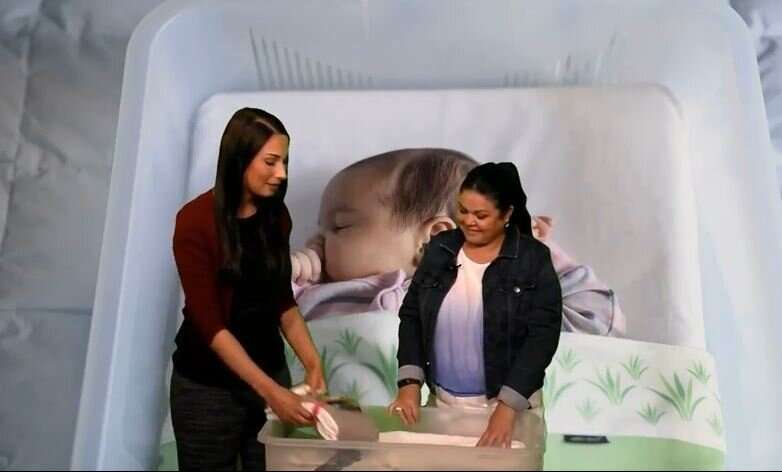
Aboriginal babies die from sudden unexplained death in infancy (SUDI) and sudden infant death syndrome (SIDS) three to four times more often than non-Aboriginal babies.
“This never has been and never will be OK,” say Professor Julian Grant and Dr. Nina Sivertsen, who are leading the Safely sleeping Aboriginal babies in South Australia program led by Flinders University.
The program, in collaboration with the Aboriginal Health Council of SA, the Women and Children’s Health Network and SA Health, was conceived after Aboriginal cultural consultant, Ms Wilhelmine Lieberwirth, approached Child and Family Health Services staff to look for ‘culturally safe’ solutions to do more for Aboriginal babies to sleep safely.
The Pepi-Pod program prioritizes safe sleep education, while also providing a small bed to create a safe ‘pod’ or sleep space that can be placed in or next to the family bed.
“We wanted to see if the Pepi-Pod program was experienced as culturally safe and if First Nations families would even use it,” says Dr. Sivertsen of the first small initial pilot trial in SA.
“Families told us that one of the best parts of the Pepi-Pod program is that ‘you don’t have to worry’ babies were in their ‘own little comfort zone.'”
https://youtube.com/watch?v=nIhb4ubaMFA%3Fcolor%3Dwhite
“Babies were ‘peaceful and safe’ and you could ‘see him,’ ‘feel him’ ‘touch him’ and ‘hear him,’ while baby slept safely in the pod.”
Flinders adjunct Professor Grant, now at Charles Sturt University in NSW, explains that many families including First Nations peoples sleep with their babies in the family bed.
“While bed sharing has many benefits, it is also associated with infant death and is not recommended by SA Health,” says Professor Grant, the project’s Chief Investigator.
Sharon Watts, an Aboriginal researcher on the project, says that it is “really important for First Nations families to feel close to their babies all the time, especially when sleeping.”
While some participants thought the Pepi-Pod itself looked a bit too much like a ‘breadbox,” they found the sense of safety comforting and the education program a great way to share safe sleep knowledge with family, friends and community.
https://youtube.com/watch?v=JQ-UKHsXGFU%3Fcolor%3Dwhite
The first paper, “It looks like a breadbox’: a pilot study investigating implementation of the Pepi-Pod program with Aboriginal families in metropolitan South Australia (2021) by J Grant, N Sivertsen, J Deverix and A Steeb has been published in Primary Health Care Research & Development.
The Pepi-Pod research team is now completing a larger Medical Research Future Fund project to deliver a safe sleep education module to about 235 health care professionals, as well as the safe sleep information and Pepi-Pod deliveries to up to 70 families to sleep their baby. sites.flinders.edu.au/ssabsa/
Source: Read Full Article
